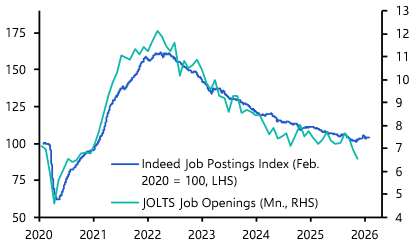Since the scale of the human, social and economic cost wrought by the coronavirus has become clear, politicians have compared the challenge of fighting it to that of a major war. It is easy to see why framing it this way might be attractive from a political perspective. After all, leaders in most countries have received a bump in their approval ratings as voters have “rallied around the flag”.
In some cases, notably the US, that bump is now fading. But irrespective of how durable the “rally around the flag” response proves to be, comparing the virus to a major war is dubious when it comes to thinking about economics of the pandemic.
Admittedly, there are some similarities - not least the fact that, as in times of war, the entire machinery of government has now been geared towards tackling a single issue. What’s more, as is also the case in times of war, both the size of the state and the scope of its powers have been expanded.
But the differences are greater. Wars are often periods of intense economic activity as production is ramped up to support the war effort. In contrast, governments have responded to the virus by shutting down production in order to stem its spread.
The inflation picture is also different. Wars are often periods of high inflation, as a combination of full employment and supply-side restrictions push up prices. So far at least, the coronavirus pandemic could perhaps be described as a period of “no-flation”, since widespread shutdowns have meant that many of the goods and services that make up consumer price indices are simply not for sale at any price. More fundamentally, when economies reopen, depressed demand means that the trend is likely to be towards disinflation rather than high inflation.
Finally, the economic legacy of pandemics is very different from that of wars. In addition to the loss of human life, wars also destroy capital stock in the countries in which they are fought. One consequence is that post-war periods tend to be characterised by higher returns on capital and greater investment, part of it on reconstruction. In contrast, pandemics cause the same tragic loss of human life but without the destruction of capital. Research by the San Francisco Fed suggests that this may be one reason why post-virus periods tend to coincide with a rise in real wages as the supply of labour falls, but with relatively low real returns and real interest rates, as investment and economic growth remains subdued.
In truth, while there are important lessons from some pandemics, particularly more recent ones such as SARS, most are likely to provide only limited insight into the economic consequences of the current coronavirus. For a start, each pandemic is different, both in terms of the number of people it kills and the demographic it affects. The Spanish Flu of 1918 killed 100 million, mainly working age, people across the world. The death toll from Covid-19 has mercifully been much lower (currently 230,000 globally). Working age populations have been less affected too.
The response of governments has also been different. One of the reasons why the loss of life has been smaller this time is that governments have been able to lock down economies in order to stem the spread of the virus in a way that wasn't previously possible. This has implications for the real economy. In the near-term, the lockdowns have meant that the hit to output and activity has been both larger and more immediate than in previous pandemics. Further out, there are good reasons to think that this pandemic is unlikely to produce the same improvement in labour’s bargaining power - and corresponding rise in real wages - that has been experienced in the past.
The uncomfortable truth, of course, is that the coronavirus - like both previous pandemics and wars - has imposed huge human and social costs, the scars from which will run deep and take years to heal. But there’s an important public policy point here too: if the long history of wars and pandemics provides limited lessons on the economic consequences, then there is little to steer governments as they navigate the path ahead. Without the guiding hand of history, the exit from lockdown is unlikely to be smooth.
In case you missed it:
- Our US team previews April’s payroll report, due this Friday…
- …and our UK team outlines what to expect from this week’s MPC meeting.
- Finally, our Senior Canada Economist, Stephen Brown, provides a brief look at what to expect from the new Governor of the Bank of Canada.



